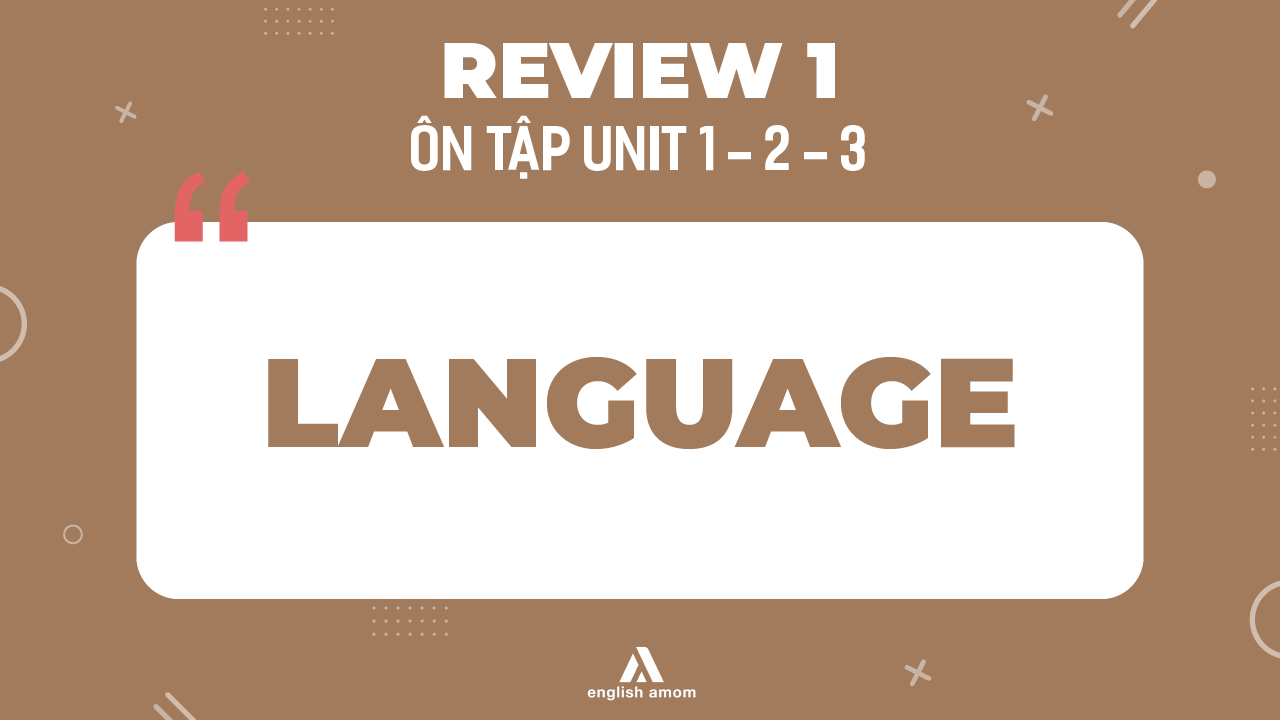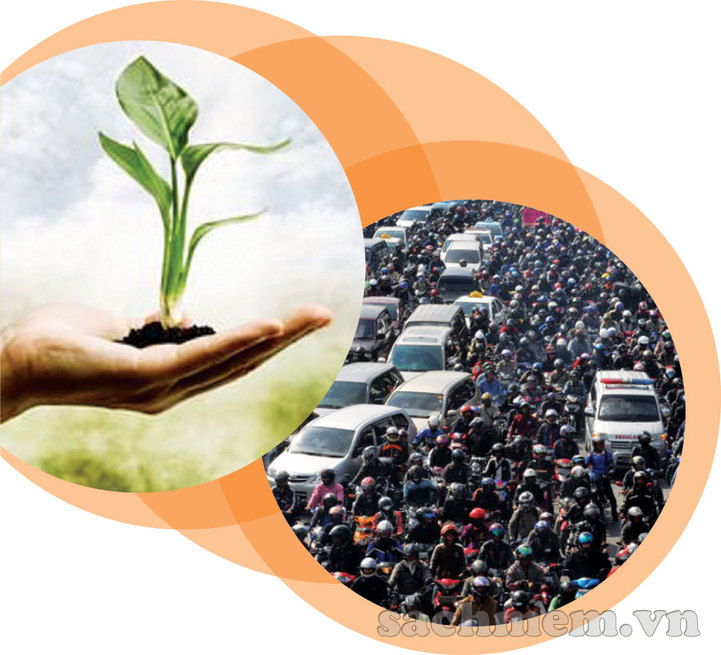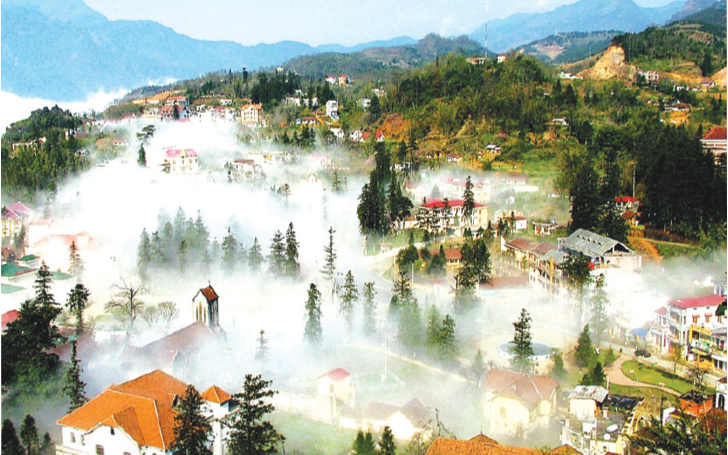
► Kênh hỏi đáp và giải thích thắc mắc kiến thức MIỄN PHÍ → truy cập LINK NHÓM: ENGLISH AMOM
► Kênh YOUTUBE hệ thống toàn bộ bài giảng CLIPS: truy cập LINK: ENGLISH AMOM CHANNEL
► Kênh TIKTOK: ENGLISH AMOM
VOCABULARY
1) Use the correct form of the words in the box to complete the sentences.

| urbanise | industrialise | dispose |
| distinguish | respect | preserve |
1. The ............................. of natural resources is essential in today's economic and technological development.
2. Ladies and gentlemen, may I introduce our ............................. guest?
3. The principal of our school is a highly ............................. man.
4. Rapid ............................. may lead to a shortage of livable housing, traffic congestion, and air pollution in urban areas.
5. Proper ............................. of harmful chemicals can prevent air and water pollution.
6. The government has proposed new measures to boost ............................. in the country.
ĐÁP ÁN:
| 1. preservation | 4. urbanisation |
| 2. distinguished | 5. disposal |
| 3. respectable/respected | 6. industrialisation |
2) Match the words on the left with the words on the right to form compound adjectives. Then use them to complete the sentences.
|
well |
wide |
| long | provoking |
| world | peak |
| thought | term |
| off | planned |
1. The speaker's ............................. presentation led to an interesting debate on urbanisation and sustainable development.
2. We'll pay less if we use ............................. electricity.
3. My parents prefer living in a place with a ............................. infrastructure and plenty of green space.
4. If we can keep track of our carbon footprint, our green lifestyle will have ............................. environmental benefits.
5. The story of Larry Stewart has attracted ............................. attention.
ĐÁP ÁN:
| 1. thought-provoking | 2. off-peak | 3. well-planned |
| 4. long-term | 5. worldwide |
PRONUNCIATION
3) Listen and write the correct words in the blanks. Then practise reading the sentences.
1. My friends have done ........................... homework. ........................... in the playground. Let's go and ask them for help.
2. The local ...........................rejected the ........................... of the environmental group.
3. ........................... is the dress I bought yesterday? I'd like to ........................... it to the party tonight.
4. He wanted his bed ........................... every day, so he decided to hire a ............................
5. I used a ........................... ribbon to mark the pages I ............................
ĐÁP ÁN:
| 1. their -They’re | 2. council - counsel |
| 3. Where - wear | 4. made - maid |
| 5. red - read |
GRAMMAR
4) Complete the sentences, using the correct form of the verbs in the box.

|
offer come provide complete join |
1. Our class monitor Manh Tung insisted that everyone .......................... the three-day tour of Sa Pa.
2. It is recommended that students .......................... their research on urbanisation before they start the class project.
3. My parents suggested that my elder brother .......................... back to my home village after graduating from university to help the community.
4. It is essential that cities .......................... access to facilities that many rural areas cannot provide.
5. It is desirable that villagers .......................... with better services, education and job opportunities.
ĐÁP ÁN:
| 1. join/ should join | 2. complete/ should complete | 3. come/ should come | 4. offer/ should offer | 5. be provided/ should be provided |
5) Put the verbs in brackets in the past simple or past continuous.
I (1. walk) ...................... home from school one day when I (2. see) ...................... an elderly woman. She (3. stand) ...................... on the curb of the pavement, nervously looking up and down the heavy traffic in the street. When I finally (4. come) ...................... to where she was standing, I (5. realise) ...................... that she was blind. I (6. stop) ......................, (7. help) ...................... her cross the road and (8. lead) ...................... her to her home. Later on, I (9. meet) ...................... my mother, who (10. wait) ...................... for me at the gate. She (11. say) ...................... she (12. worry) ...................... about me and (13. wonder) ...................... why I was so late.
ĐÁP ÁN:
| 1. was walking | 2. saw | 3. was standing |
| 4. came | 5. realised | 6. stopped |
| 7. helped | 8. led | 9. met |
| 10. was waiting | 11. said | 12. was worrying |
| 13. wondered |
6) Make compound or complex sentences, use the prompts and the words in brackets.
1. students / keep / homes / schools / green / clean / contribute / Go Green / campaign (if)
→ ...........................................................................................................................................
2. burning / fossil fuels / emit / harmful gases / people / still / use / heating / cooking (but)
→ ...........................................................................................................................................
3. city buses / taxis / use / noise reduction devices / run / environmentally friendly / fuels (and)
→ ...........................................................................................................................................
4. many resident / coal fires / cooking / can / seriously / pollute / air / city (which)
→ ............................................................................................................................................
5. they / use / corn / make / bio-fuels / may / lead / food shortages (which)
→ ............................................................................................................................................
ĐÁP ÁN:
1. If students (can) keep their homes and schools green and clean, they will contribute to the Go Green campaign.
2. The burning of fossil fuels emits harmful gases, but people still use them for heating and cooking.
3. The city buses and taxis use noise reduction devices and run on environmentally friendly fuels.
4. Many residents use coal fires for cooking, which can seriously pollute the air of the city.
5. They use corn to make bio-fuels, which may lead to food shortages.

